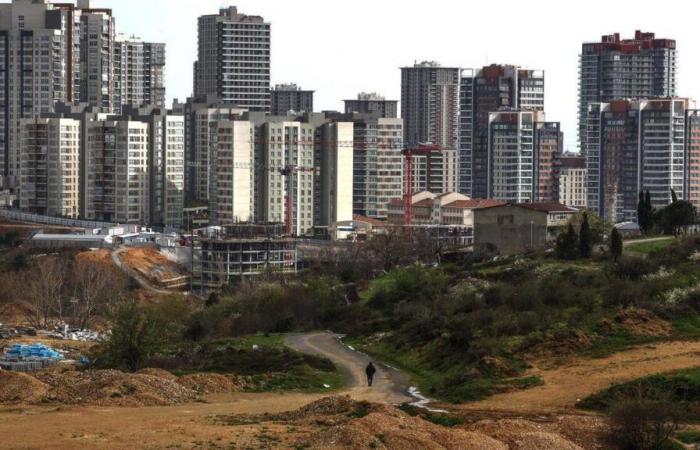The Turkish Central Bank lowered its key rate on Thursday, for the first time since February 2023, to 47.5% (-2.5 pts), in the face of a slowdown in inflation. This rate had been maintained at 50% since last March to try to stem inflation, still above 47% over one year.
The Central Bank, which says it remains “cautious”, justified its decision by emphasizing that “the indicators from the last quarter show that domestic demand continues to slow down and is at levels supporting the slowdown in inflation”.
Our articles on Turkey
This reduction in the key rate also follows Tuesday’s announcement of an increase considered as measured by economists in the Turkish minimum wage on January 1.
While the unions demanded an increase of more than 70%, the government set the increase in the minimum wage at 30% to bring it to 22,100 Turkish liras, or approximately 600 euros.
An increase in the rate in 2023
“The restrictive stance of monetary policy will be maintained until a significant and sustainable decline in the underlying monthly inflation trend is achieved and inflation expectations converge towards the forecast range,” adds the Central Bank in a press release.
The bank raised its inflation forecasts in November, counting on a rate of 44% for the end of the year and a slowdown to 14% at the end of 2025.
Faced with the surge in prices, fueled by the weakness of the Turkish lira, the bank raised its key rate from 8.5 to 50% between June 2023 and March 2024. Inflation, which had exceeded 75% in May in annual rate, slowed in November for the sixth consecutive month, to 47.1% year-on-year.






